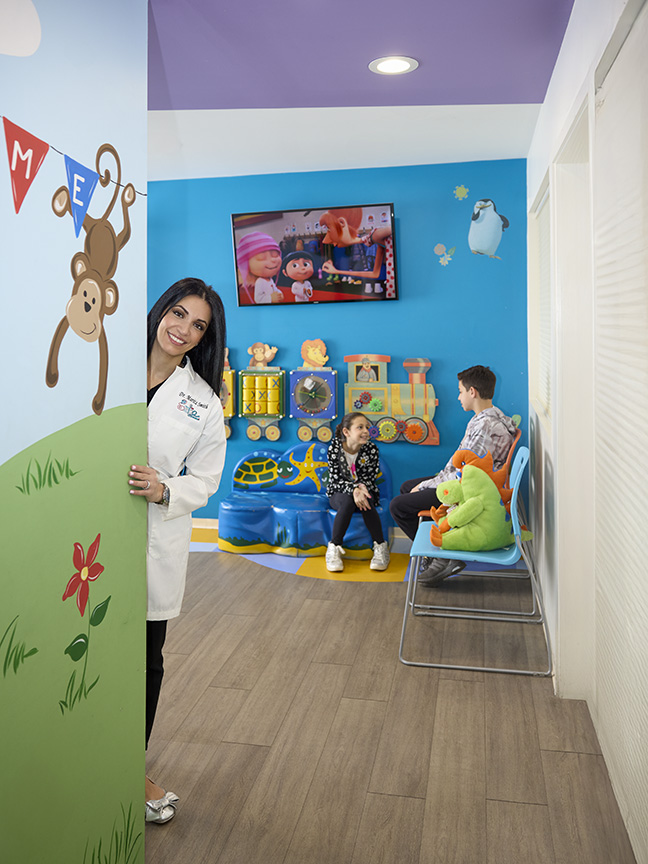Coughs, colds, and fevers are all too familiar to parents of any child, no matter how young or old. But how can a parent know when their child’s illness is serious, compared to just the common cold or cough that can be treated at home? Minu George, M.D., the Interim Chief of General Pediatrics for Cohen’s Children Medical Center at Northwell Health, gives some advice on how parents can determine whether their child’s illness is routine or requires further medical intervention.
How to Know When a Cold is Serious
The average child has six to 10 colds per year, meaning that it is normal for her to be sick for nearly a third of the year, Dr. George says. Most children have not yet been exposed to numerous different viruses and bacteria, and they also tend to spread viruses and bacteria to each other, so it is not abnormal for a child to have this many simple coughs and colds per year, Dr. George adds.
Whenever a child is sick, parents can be worried, but what is most important is to assess how the child looks to determine if further medical attention is needed. In general, parents should call the pediatrician “anytime a child is sick for several days and then gets a lot worse or is acting different,” Dr. George says.
A typical cold lasts seven to 10 days, but if it lasts longer, or if the child has difficulty breathing, is inconsolable, very sleepy and “out of it,” or having trouble breathing, those can be signs of more serious illness, according to Dr. George. Trouble breathing can be in the form of a cough that is non-stop and causes the child to not be able to eat or sleep, when the parent can see his lungs move in and out, the little notch between his neck and chest (also called the substernal notch) in sucking in, or the nostrils flaring. All of these signs indicate that he needs immediate medical attention, Dr. George says.
One example of a serious illness that can cause these symptoms, especially in children younger than 2, is Respiratory Syncytial Virus, or RSV. It causes a bad head cold in older children and adults, Dr. George says. But babies—especially those who are premature or have underlying medical conditions, including lung and heart disease—are at risk for the illness to be severe and cause difficulty breathing that requires medical attention.
How to Know When a Fever is Serious
Most of these symptoms of coughs and colds, along with symptoms of other illnesses, are associated with fever. Fever can be frightening for parents, especially when numbers are 100 and higher, but, Dr. George says, “it’s not the number that is distressing, it’s how [the child] looks.”
Get the Best Family Activities
Sent to You Weekly!
“My kids can actually give that talk that fever is really your friend,” she adds. Fever is the body’s way of fighting infection by recruiting all of the inflammatory agents to activate this important response to illness, and therefore should not necessarily be suppressed.
A fever normally lasts for three to four days, but for a child younger than 2, any fever can be problematic and should prompt a call to the pediatrician. For an older child, a lukewarm bath or something to drink might help alleviate the symptoms of a fever, according to Dr. George.
Tylenol, or other anti-pyretic (anti-fever) medicine, can also be used for symptom relief if a bath or drink doesn’t help a child with fever. However, it should not be given regularly because it suppresses the important physical response of fever. It should only be given to treat her symptoms if the child is in distress.
Further medical attention should be sought if a child continues to be in distress despite these attempts to comfort him, Dr. George says. Parents “should not be treating the number, but treating the child,” she says. Some children have a 103 fever and can be “bouncing off the walls,” she says, while others may seem very ill.
How to Help Your Sick Child
If a child does not seem to be in extreme distress due to these symptoms of cough, cold, or fever, there are many ways parents can try to comfort her at home. Dr. George says a nasal saline spray, along with a humidifier, can help her breathe. Encouraging the child to drink more liquids can help thin mucous and make her more comfortable, and even grandma’s chicken soup might make her feel better.
Dr. George also suggests that a child should stay home when he is ill for 24 hours past his last fever to prevent other children from getting sick. If a child is acutely ill with a lot of coughing, fever, or diarrhea, he can pass the illness onto his classmates and teachers.
A step parents can take to help prevent illness in their children is to make sure their children are vaccinated for the flu, along with the other members in the house, Dr. George says. What’s most important is keeping the child healthy, and if she is sick, keeping her comfortable, so she can get back to doing all of the things she loves.
RELATED:
Find Medical Professionals Near You
Find Kids' Health Care Providers Near You




